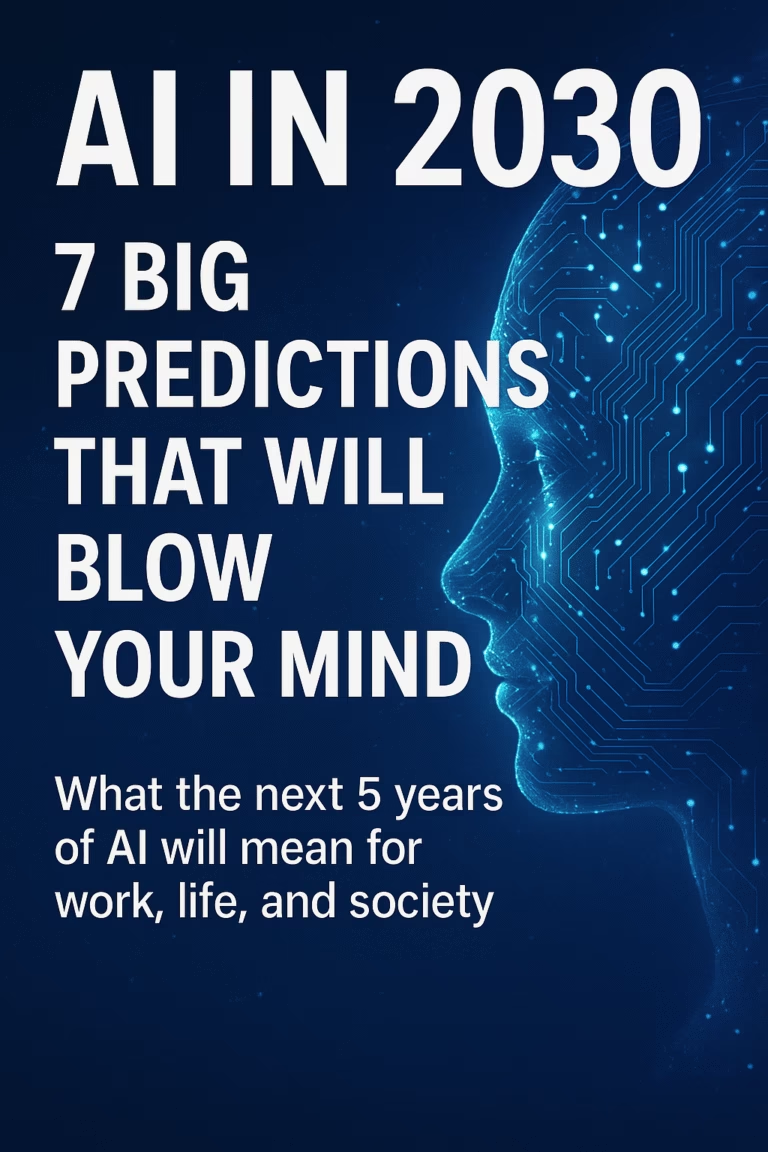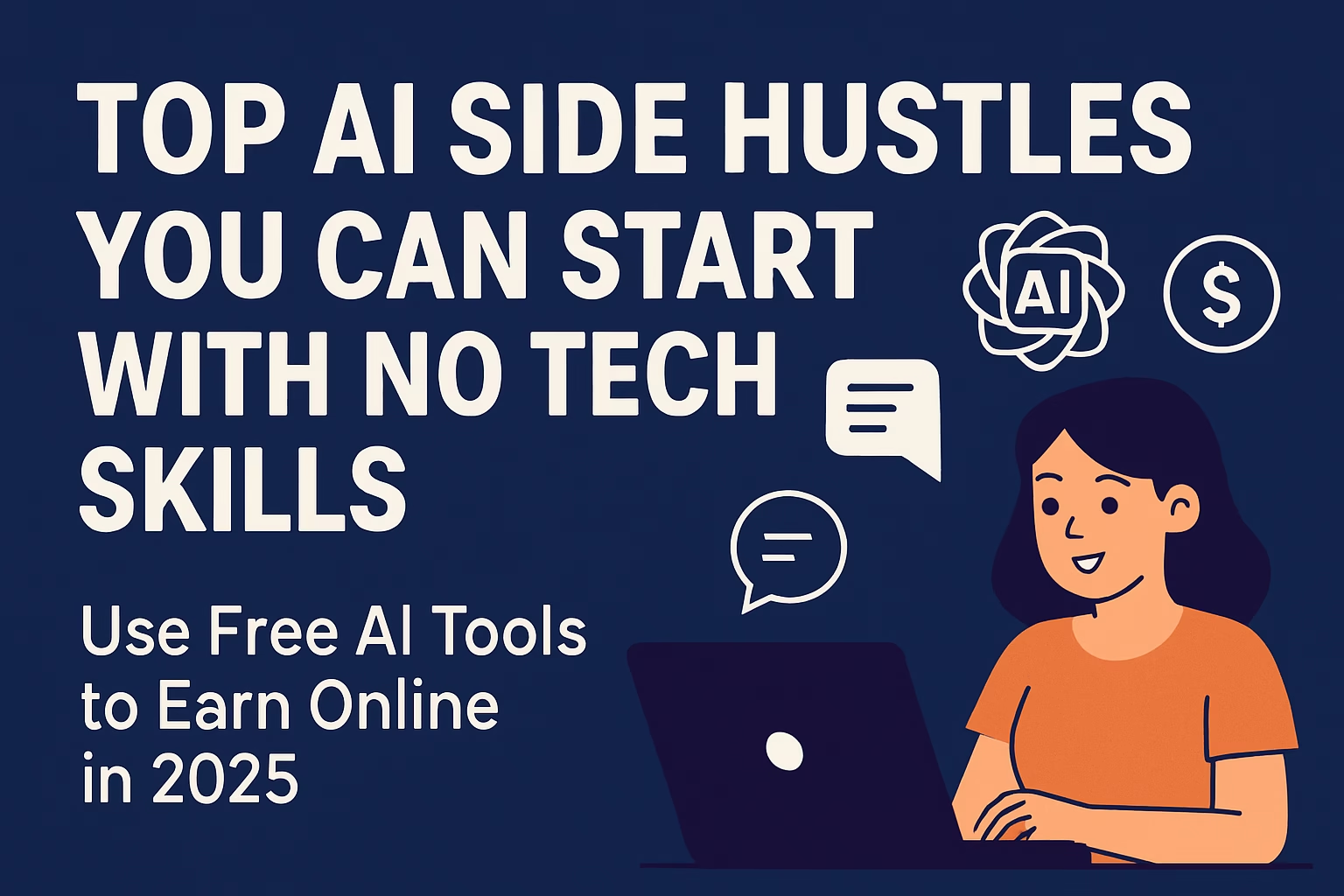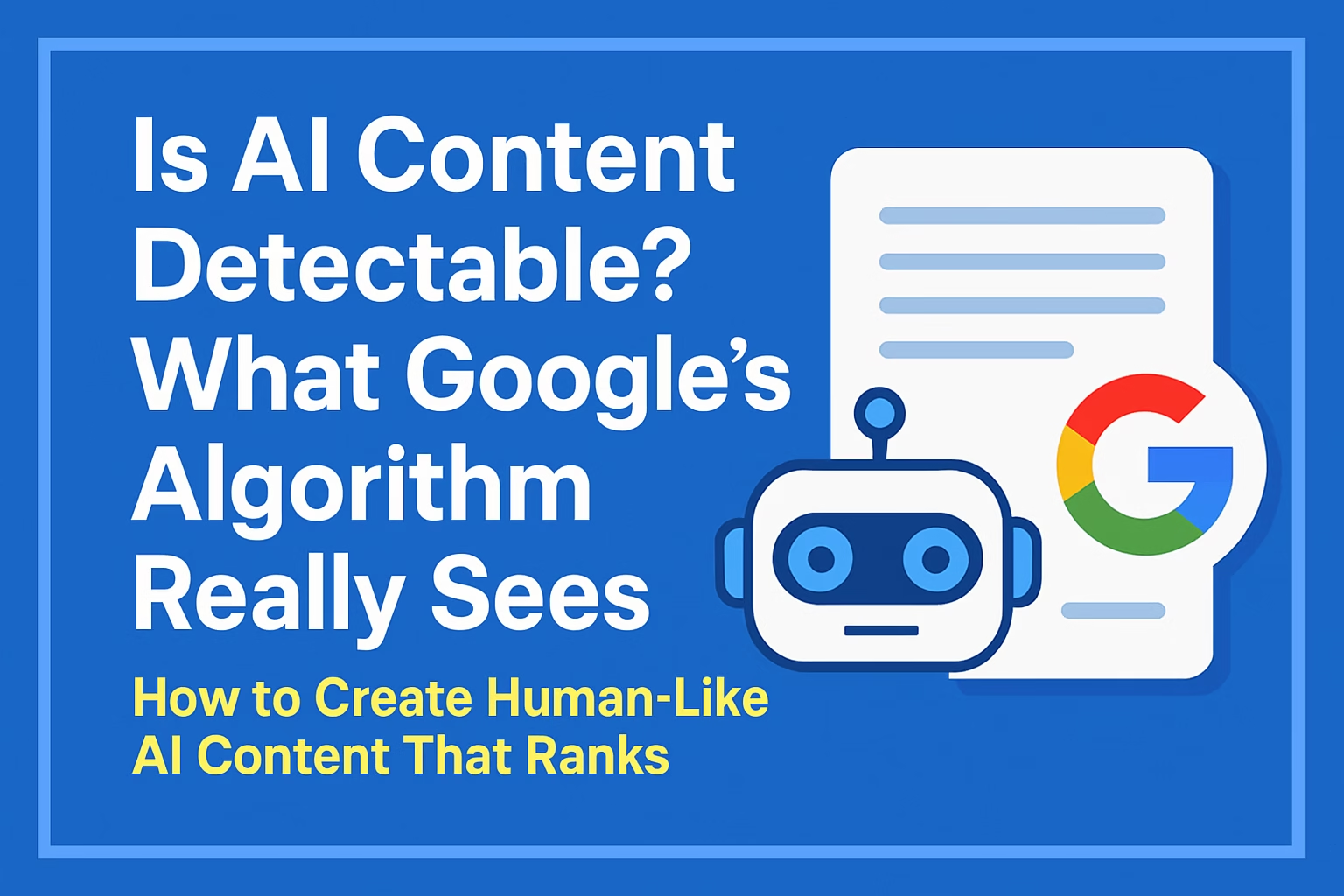What the next 5 years of AI will mean for work, life, and society.
The year 2030 might seem distant, but in the rapidly evolving world of artificial intelligence, it’s practically tomorrow. As we stand on the precipice of unprecedented technological transformation, the next five years promise to reshape every aspect of human existence. From the way we work to how we interact with our environment, AI is poised to revolutionize our world in ways that would have seemed like pure science fiction just a decade ago.
The current AI landscape already shows remarkable progress with large language models, computer vision breakthroughs, and automation technologies. However, what’s coming next will make today’s innovations look like the first steps of a journey toward an entirely new civilization. These predictions aren’t just educated guesses—they’re based on current technological trajectories, massive investments, and the accelerating pace of AI research worldwide.
1. AI Will Replace 40% of Traditional Jobs (While Creating New Ones)
By 2030, artificial intelligence will fundamentally transform the job market in ways that will initially shock, then ultimately benefit society. Current estimates suggest that 40% of traditional jobs will be either fully automated or significantly transformed by AI systems.
Manufacturing, data entry, basic customer service, and routine analytical work will see the most dramatic changes. However, this disruption comes with a silver lining: for every job AI eliminates, it’s projected to create 1.2 new positions. These emerging roles will focus on AI management, human-AI collaboration, creative problem-solving, and emotional intelligence applications.
The transition won’t be seamless, but companies like Waldex Resource are already preparing businesses for this shift by offering comprehensive AI integration strategies and workforce retraining programs. The key to thriving in 2030 will be adaptability and continuous learning.
Industries most affected will include:
- Transportation (autonomous vehicles)
- Healthcare diagnostics
- Financial services
- Legal research and document review
- Content creation and marketing
2. Personalized AI Healthcare Will Predict Illness Before Symptoms Appear
The healthcare revolution powered by AI will reach maturity by 2030, with personalized AI doctors becoming as common as smartphones today. These AI systems will continuously monitor your health through wearable devices, environmental sensors, and regular data inputs, predicting potential health issues months or even years before traditional symptoms manifest.
Imagine an AI that knows your genetic predispositions, lifestyle patterns, environmental exposures, and family history so intimately that it can recommend preventive measures for conditions you don’t even know you’re at risk for. This predictive healthcare model will shift the entire medical paradigm from reactive treatment to proactive prevention.
According to recent research, AI-driven early detection could prevent up to 30% of chronic diseases and reduce healthcare costs by an estimated $150 billion annually in the United States alone. Mental health support will also be revolutionized, with AI therapists providing 24/7 emotional support and early intervention for depression, anxiety, and other psychological conditions.
3. AI-Powered Smart Cities Will Optimize Everything in Real-Time
By 2030, smart cities powered by artificial intelligence will manage urban infrastructure with unprecedented efficiency. Traffic lights will adjust in real-time based on actual traffic patterns, energy grids will balance supply and demand instantaneously, and waste management systems will optimize collection routes to reduce environmental impact.
These AI city brains will process millions of data points every second from sensors, cameras, smartphones, and IoT devices throughout the urban environment. The result will be cities that feel almost alive—responsive, adaptive, and constantly improving their own performance.
Energy consumption could drop by 20-30% through AI optimization, while traffic congestion might be reduced by up to 40%. Emergency response times will improve dramatically as AI systems predict and prepare for incidents before they fully develop. Air quality, noise pollution, and resource distribution will all be managed through sophisticated AI algorithms that learn and adapt continuously.
4. Artificial General Intelligence (AGI) Will Emerge and Change Everything
Perhaps the most transformative prediction for 2030 is the emergence of Artificial General Intelligence—AI systems that match or exceed human cognitive abilities across all domains. While current AI excels in specific tasks, AGI will possess the flexibility, creativity, and general problem-solving capabilities that define human intelligence.
Leading AI researchers estimate a 50% probability that AGI will be achieved by 2030, with some organizations claiming even earlier timelines. Once AGI emerges, the rate of technological progress will accelerate exponentially, as these systems will be able to improve themselves and solve complex problems that currently require teams of human experts.
The implications are staggering: scientific discoveries that would take decades could be completed in weeks, complex engineering challenges could be solved overnight, and entirely new fields of knowledge could emerge. However, this also represents the most significant challenge humanity has ever faced, requiring careful governance and ethical frameworks to ensure AGI benefits all of humanity.
5. AI Will Make Education Completely Personalized for Every Individual
The one-size-fits-all education model will become obsolete by 2030, replaced by AI tutors that adapt to each student’s learning style, pace, and interests in real-time. These AI education systems will understand not just what a student needs to learn, but how they learn best, when they’re most receptive to new information, and what motivates them to push through challenging concepts.
Every student will have access to world-class education regardless of their geographic location or economic circumstances. AI tutors will provide unlimited patience, available 24/7, and will never judge or become frustrated with struggling students. Language barriers will disappear as AI systems provide real-time translation and cultural adaptation of educational content.
The democratization of high-quality education through AI could be the great equalizer of the 21st century, providing opportunities for billions of people who currently lack access to quality educational resources. Traditional universities may need to completely reimagine their role as AI makes expert-level knowledge accessible to anyone with an internet connection.
6. Autonomous Everything Will Transform Transportation and Logistics
By 2030, autonomous vehicles will dominate not just personal transportation but entire logistics and supply chain networks. Self-driving cars, trucks, drones, and ships will create a seamlessly integrated transportation ecosystem that operates with minimal human intervention.
Personal car ownership will decline significantly in urban areas as autonomous ride-sharing services become more convenient and cost-effective. Long-haul trucking will be fully automated, operating 24/7 without rest breaks and significantly reducing shipping costs and delivery times.
The economic impact will be enormous: transportation costs could drop by 40-60%, making goods and services more affordable worldwide. Traffic accidents, which currently cause over 1.3 million deaths annually, could be reduced by 90% or more as human error is eliminated from driving.
7. AI Will Achieve Scientific Breakthroughs at Unprecedented Speed
The final prediction that will blow your mind: AI will accelerate scientific discovery to a pace that humans have never experienced. By 2030, AI systems will be making breakthrough discoveries in physics, chemistry, biology, and materials science at a rate that would have taken human scientists centuries to achieve.
Drug discovery, which currently takes 10-15 years and billions of dollars, will be compressed into months with AI analyzing molecular interactions and predicting successful compounds with remarkable accuracy. Climate change solutions, renewable energy technologies, and space exploration will all benefit from AI’s ability to process vast amounts of data and identify patterns invisible to human researchers.
New materials with properties we can barely imagine today will be designed by AI, potentially leading to room-temperature superconductors, ultra-efficient solar panels, and construction materials that make today’s strongest composites look primitive.
The Transformation Timeline: What to Expect When
| Year | Major AI Milestones | Impact on Society | Key Industries Affected |
|---|---|---|---|
| 2025 | Advanced AI assistants become ubiquitous | Productivity surge in knowledge work | Tech, Finance, Healthcare |
| 2026 | First fully autonomous city districts | Urban planning revolution | Transportation, Energy, Government |
| 2027 | AI doctors pass medical licensing exams | Healthcare accessibility improves dramatically | Healthcare, Insurance, Pharma |
| 2028 | Personalized education AI reaches 100M students | Education equality begins globally | Education, Publishing, EdTech |
| 2029 | First AGI systems demonstrate human-level reasoning | Acceleration of all technological progress | All sectors begin transformation |
| 2030 | Integrated AI ecosystem transforms daily life | Society operates fundamentally differently | Complete economic restructuring |
Preparing for the AI Revolution
The question isn’t whether these changes will happen—it’s whether we’ll be ready for them. The organizations and individuals who thrive in 2030 will be those who start preparing today. This means investing in AI literacy, developing skills that complement rather than compete with AI, and creating flexible strategies that can adapt to rapid change.
Governments must begin developing new regulatory frameworks, social safety nets, and educational systems designed for an AI-integrated world. Companies need to start planning for workforce transitions and identifying opportunities to leverage AI for competitive advantage.
The next five years will determine whether humanity harnesses AI’s potential for unprecedented prosperity and progress, or whether we stumble through a chaotic transition that leaves millions behind. The choice is ours, but the window for preparation is closing fast.
Conclusion: Embracing the Inevitable Future
The seven predictions outlined here represent more than technological advancement—they represent a fundamental transformation in what it means to be human in a world shared with artificial intelligence. By 2030, AI won’t just be a tool we use; it will be an integral part of the fabric of society, woven into every aspect of our daily lives.
The future described here isn’t guaranteed, but it’s increasingly probable based on current trends and investments. The key to success in this new world will be adaptability, continuous learning, and the wisdom to direct AI’s power toward solving humanity’s greatest challenges while preserving what makes us uniquely human.
Whether these predictions blow your mind or terrify you, one thing is certain: the next five years will be the most transformative in human history. The age of AI is not coming—it’s already here, and by 2030, it will have reshaped everything.
For more insights on preparing your business for the AI revolution, visit Waldex Resource for comprehensive AI strategy consulting and implementation services.
Sources and Further Reading:
- MIT Technology Review: “The AI Revolution Timeline”
- Stanford AI Index Report 2024
- McKinsey Global Institute: “The Future of Work in the Age of AI”
- World Economic Forum: “Jobs of Tomorrow Report”
- Harvard Business Review: “Competing in the Age of AI”



